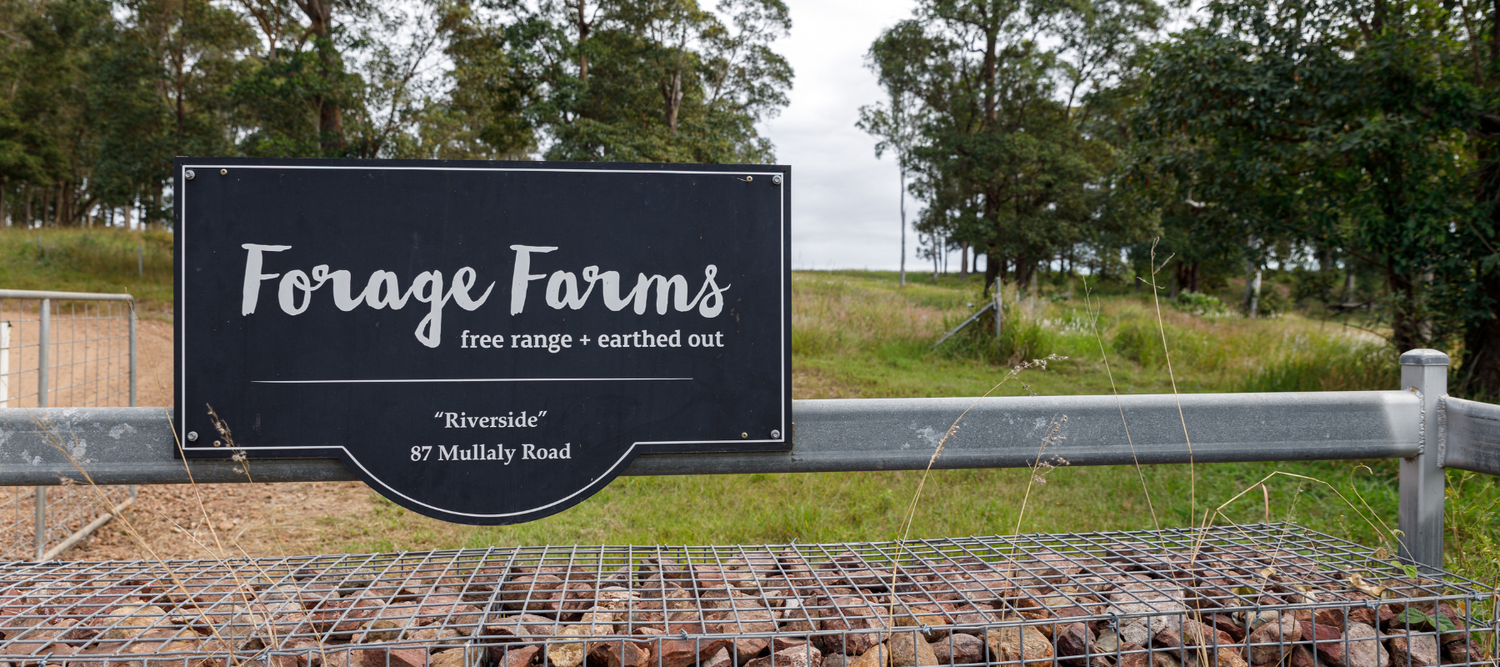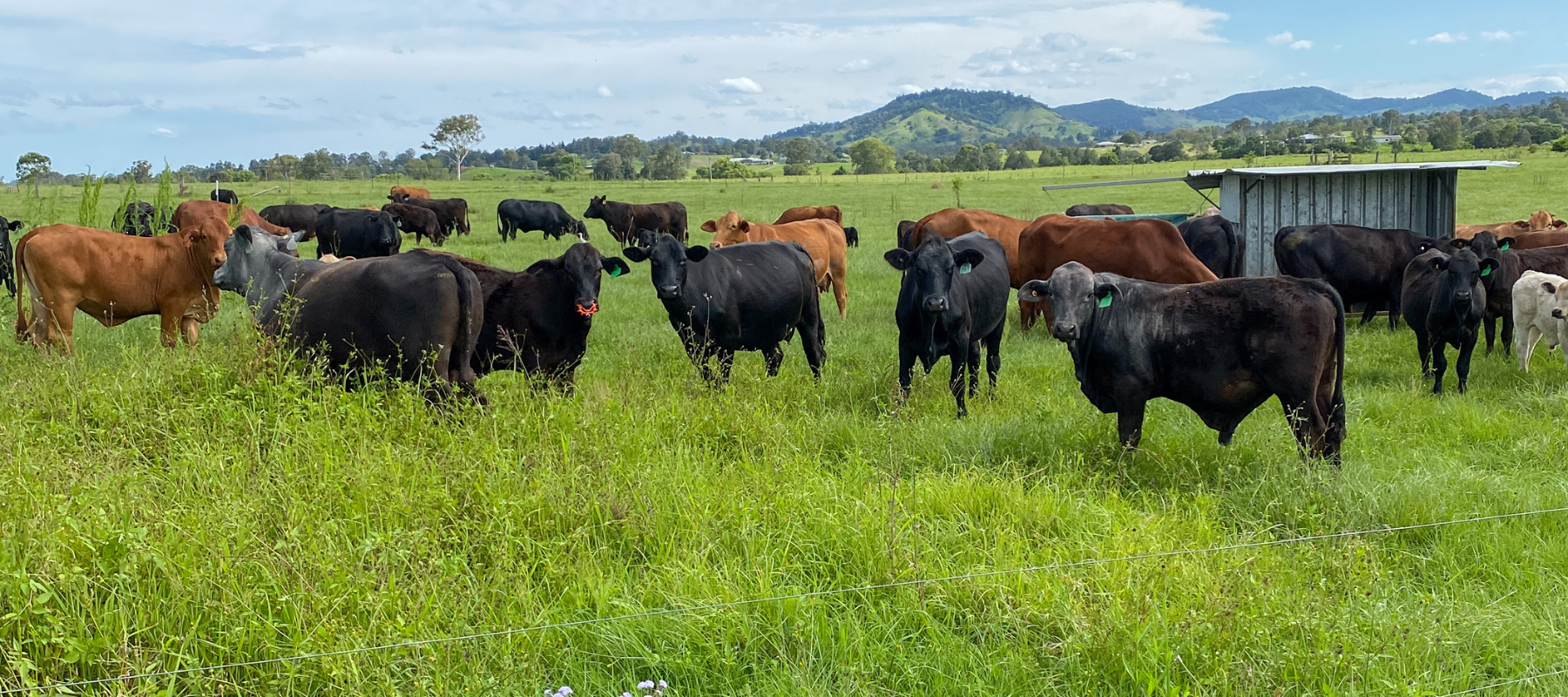If you are after comfort food, it’s hard to beat a couple of perfectly cooked Forage Farms eggs and a piece of toast! Have you ever pondered what’s required to get this delicious but simple fare from the paddock to your plate? Let us take you behind the scenes at the farm.
There is a rhythm at Forage Farms – a combination of routine and flexibility. Of course, there is one job that happens every, single, day – and that’s the egg pick. Our hens don’t get a day off, nor do we!
Daily farm jobs
Each morning we check all our flocks to ensure they have plenty of water and food. Especially in the hotter months, access to water is essential. A couple of hours without will result in a drop in production. Part of this routine also includes observing the health of the birds and picking up any eggs that may be on the ground.
Then there’s the egg collection. With five flocks of 1500 chickens we are collecting approximately 6000 eggs a day. Holly is our chief egg picker, but we also have Steph and Sudhiira helping her on different days. The egg pick starts and 8am and is finished by about noon. Then the eggs need to be transferred from the Ute into the cool room.
When we have meat chickens they are also checked, moved, and fed every morning. Once they have transitioned into the paddock we move their houses to a new patch of grass each day.
In the afternoons it is time to feed and water the pigs. If it is a hot day we will turn the misters on in their shade shelters to keep them cool. While we are checking the pigs we also feed our Maremma dogs.
Another regular job is moving the cattle which regularly moved depending on the size of the mob, the paddock they are in and what we trying to achieve at the time - all part of our time-controlled grazing system.
Monday and Tuesday jobs
The early part of the week is the busiest for the egg business. This is when we are collating orders and dealing with the stores. The shed is a hive of activity as boxes all get packed, dated, marked, and taped. After this is finished the egg machine that washes, weighs, and stamps the eggs is cleaned and left apart to air dry for the next day.
Each Monday our flocks also get moved to a fresh patch of paddock so that they can access new nutrients.
Tuesday is also a big pack day with five packers starting at 7am and finishing at about 2pm. Depending on supply and demand packing can be a bit of a juggle. We always try to ensure that everyone gets at least some eggs. This is when we do the invoicing and put stickers and labels on the palettes. Then it’s into the van ready for delivery to Brisbane on Wednesday.
Wednesday is delivery day
Our trusty driver Asko departs at 4am to ensure the eggs start making it to the stores by 6am. He is usually back at the farm by midday. Local deliveries around Gympie are also done on Wednesday.
Once the eggs have left, the pack shed is washed down and thoroughly cleaned. Any dirty trays are also washed and dried ready to be reused.
On Wednesday afternoons Steph also replenishes the birds’ peck supplements.
Thursday and Friday
The latter part of the week is slightly quieter, and we use this time to build and repair fences, slashing and cattle yard work. Along with any other farm maintenance work.
Thursday is the day eggs get delivered to the greater Sunshine Coast region with Asko leaving the farm at 7am and getting back around 3pm.
Fridays we keep aside as a catch-up day. Nothing is set and it depends on what needs to be done. Right now, we are getting houses ready for new chickens. This means doing any necessary repairs and washing the feeders before taking them out into the paddock, so they are ready for the new flock of birds arriving on Wednesday.
Weekends
This is when we attempt to be a little quieter! On these days it is just the family on the farm, apart from Holly who collects the eggs. If there are any small building projects or fencing work this is when it gets done.
We’ve all heard the adage ‘milk doesn’t come from a bottle.’ As you can tell it takes a lot of work before the eggs get from our farm to your doorstep. We love what we do and are proud of the work our amazing team does to ensure you get the very best local, regenerative and pasture raised produce.
There is a rhythm at Forage Farms – a combination of routine and flexibility. Of course, there is one job that happens every, single, day – and that’s the egg pick. Our hens don’t get a day off, nor do we!
Daily farm jobs
Each morning we check all our flocks to ensure they have plenty of water and food. Especially in the hotter months, access to water is essential. A couple of hours without will result in a drop in production. Part of this routine also includes observing the health of the birds and picking up any eggs that may be on the ground.
Then there’s the egg collection. With five flocks of 1500 chickens we are collecting approximately 6000 eggs a day. Holly is our chief egg picker, but we also have Steph and Sudhiira helping her on different days. The egg pick starts and 8am and is finished by about noon. Then the eggs need to be transferred from the Ute into the cool room.
When we have meat chickens they are also checked, moved, and fed every morning. Once they have transitioned into the paddock we move their houses to a new patch of grass each day.
In the afternoons it is time to feed and water the pigs. If it is a hot day we will turn the misters on in their shade shelters to keep them cool. While we are checking the pigs we also feed our Maremma dogs.
Another regular job is moving the cattle which regularly moved depending on the size of the mob, the paddock they are in and what we trying to achieve at the time - all part of our time-controlled grazing system.
Monday and Tuesday jobs
The early part of the week is the busiest for the egg business. This is when we are collating orders and dealing with the stores. The shed is a hive of activity as boxes all get packed, dated, marked, and taped. After this is finished the egg machine that washes, weighs, and stamps the eggs is cleaned and left apart to air dry for the next day.
Each Monday our flocks also get moved to a fresh patch of paddock so that they can access new nutrients.
Tuesday is also a big pack day with five packers starting at 7am and finishing at about 2pm. Depending on supply and demand packing can be a bit of a juggle. We always try to ensure that everyone gets at least some eggs. This is when we do the invoicing and put stickers and labels on the palettes. Then it’s into the van ready for delivery to Brisbane on Wednesday.
Wednesday is delivery day
Our trusty driver Asko departs at 4am to ensure the eggs start making it to the stores by 6am. He is usually back at the farm by midday. Local deliveries around Gympie are also done on Wednesday.
Once the eggs have left, the pack shed is washed down and thoroughly cleaned. Any dirty trays are also washed and dried ready to be reused.
On Wednesday afternoons Steph also replenishes the birds’ peck supplements.
Thursday and Friday
The latter part of the week is slightly quieter, and we use this time to build and repair fences, slashing and cattle yard work. Along with any other farm maintenance work.
Thursday is the day eggs get delivered to the greater Sunshine Coast region with Asko leaving the farm at 7am and getting back around 3pm.
Fridays we keep aside as a catch-up day. Nothing is set and it depends on what needs to be done. Right now, we are getting houses ready for new chickens. This means doing any necessary repairs and washing the feeders before taking them out into the paddock, so they are ready for the new flock of birds arriving on Wednesday.
Weekends
This is when we attempt to be a little quieter! On these days it is just the family on the farm, apart from Holly who collects the eggs. If there are any small building projects or fencing work this is when it gets done.
We’ve all heard the adage ‘milk doesn’t come from a bottle.’ As you can tell it takes a lot of work before the eggs get from our farm to your doorstep. We love what we do and are proud of the work our amazing team does to ensure you get the very best local, regenerative and pasture raised produce.




